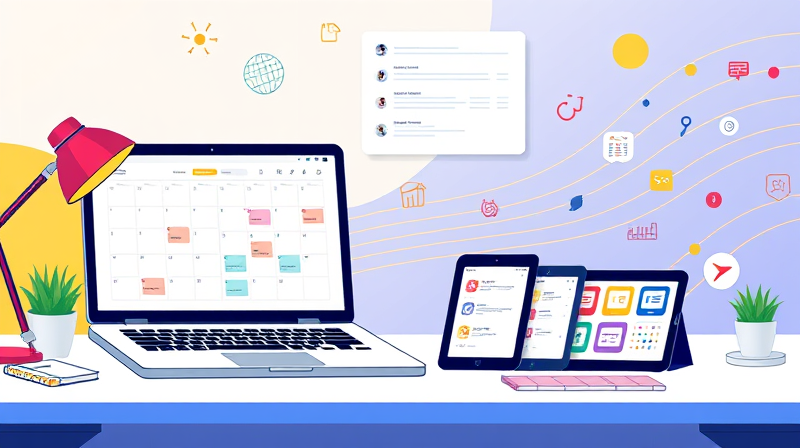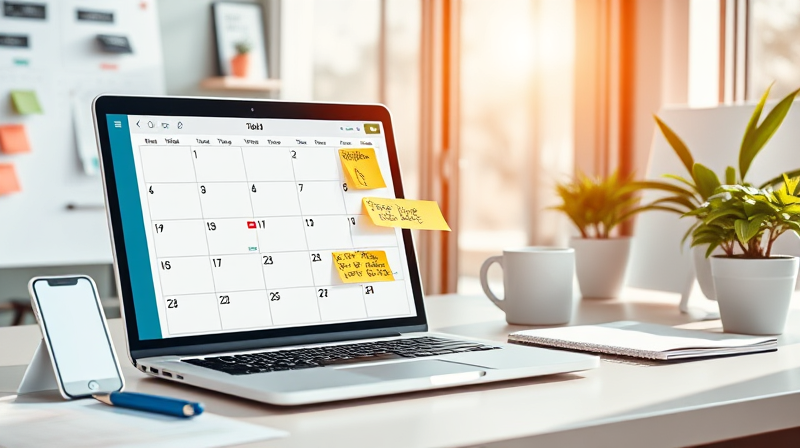In today’s fast-paced world, stress is an all too familiar companion as we navigate countless responsibilities and face relentless deadlines. It might seem impossible to keep up, but by implementing core techniques of stress management, you can regain control of your day and enhance your overall well-being. This article provides a comprehensive look at practical strategies that can transform an overwhelming schedule into a manageable, productive life.
When the world feels chaotic, mastering your time becomes a crucial skill. Effective time management techniques not only help in organizing your day but also significantly relieve anxiety by avoiding that overwhelming last-minute rush.
Mastering Time Management
One of the essential steps towards reducing stress is learning how to prioritize your tasks. Make the decision to focus on what’s truly important rather than getting lost in a sea of urgent requests. Prioritization is about knowing which tasks require immediate attention and which ones can wait. Consider employing methods like the Eisenhower Matrix, which clearly differentiates between urgent and important tasks.
Another effective technique is the Pomodoro Technique. This method divides your work into 25-minute intervals of focused activity, followed by short breaks. This not only promotes concentration but also prevents burnout. Realistic scheduling also plays a critical role, ensuring that you allot sufficient time for each task while allowing for unexpected changes. A well-structured plan paves the way for both better productivity and less stress.
Incorporating Mindfulness Practices
Mindfulness is a powerful tool that anchors you in the present moment. Meditation and guided breathing offer more than a simple relaxation technique; they provide a way to dismantle the physical and mental tension produced by a busy life. These practices help in focusing your attention, sharpening your concentration, and setting a resilient mindset for dealing with daily challenges.
Additionally, consider practices such as the body scan and progressive muscle relaxation, which help reduce physical symptoms of stress. By consciously releasing tension from each muscle group, you invite calmness into your day. Visualization techniques, where you picture a peaceful scenario, also allow you to momentarily step away from your busy schedule and recharge.
Physical Well-being
Your body is your most important asset in combating stress. Regular exercise is vital. Even brief, consistent periods of physical activity can help release endorphins, nature’s mood lifters, to combat stress naturally. Consider integrating simple activities such as short walks into your daily routine, particularly during intense work sessions.
A nutritious diet also plays an essential role. Consuming balanced meals, rich in omega-3 fatty acids and other essential nutrients, helps to manage cortisol levels and enhances both mental and physical health. Equally important is ensuring you get adequate rest. A solid night’s sleep supports both recovery and mental clarity, preventing the detrimental cycle of sleep-deprivation and increased stress.
Taking Breaks and Creating Boundaries
In the midst of continuous activity, small breaks can have profound effects on your mental and physical well-being. Short respites between tasks shouldn't be seen as interruptions, but rather as essential pauses to reset and revitalize your mind. Step away from your desk, stretch, or simply enjoy a few moments of silence outdoors. Establishing strict work-life boundaries is another vital element in reducing stress. When you unplug from work during personal time, you give yourself the compassion and space needed to recharge, which leads to more sustainable productivity.
Cultivating Emotional Resilience
Emotional strength is the bedrock of stress management. It’s important to recognize that negative thoughts are best challenged with practical strategies. Techniques from Cognitive Behavioral Therapy (CBT) can help you reframe these thoughts, shifting you from an overwhelming sense of pressure to one of resilience and positivity. Establish a gratitude practice by keeping a daily journal of positive moments. Do not forget to appreciate the small wins, as they often build the momentum needed for lasting change.
Leveraging Social Support and Organized Environments
Social connections have a significant mitigating effect on stress. Engaging in conversations with friends, colleagues, or loved ones can build a support network that reminds you that you are not alone. Whether you opt for a quick chat or share a meal, these moments of connection are invaluable.
Meanwhile, an organized, ergonomic workspace has a noticeable impact on productivity and stress levels. A tidy environment minimizes distractions, enhancing your focus while ensuring comfort during long periods of work. An intentionally personalized workspace further reinforces your capacity to stay calm and clear-minded.
Mindful Use of Technology
In a world dominated by technology, it’s easy to be overwhelmed by excessive screen time and notifications. Setting boundaries on your technology usage is an effective way to regain mental clarity. Limiting your time on social media, turning off non-essential notifications, and regularly disconnecting can vastly improve your focus and reduce cognitive overload.
In conclusion, while stress may be an inevitable part of a high-paced schedule, it does not have to dictate the quality of your life. By incorporating these strategies—effective time management, mindfulness practices, physical well-being, boundary-setting, emotional resilience, and mindful use of technology—you build a foundation for a healthier, happier life. Small, consistent changes are the stepping stones to an improved mindset and a more balanced approach to daily challenges.
Remember, every effort you make to manage your stress is an investment in a more productive, resilient, and inspired you. Embrace these techniques with determination and watch as your ability to thrive in the midst of chaos transforms into an enduring source of strength and well-being.








